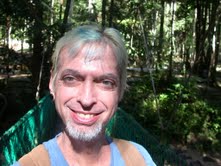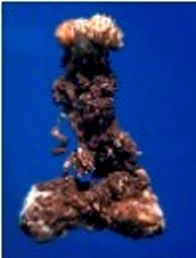Cyclosporine Success Story
How does cyclosporine effect the lives of people?
Cyclosporine has helped save many lives, and some of these success stories may have hit closer to home than you may imagine. Here, at UW La Crosse, one of our esteemed biology/mycology professors, Dr. Tom Volk, has had a run-in with Cyclosporine.
 About five years ago, Dr. Volk found
out that he needed a heart transplant. He had been battling heart problems
for several years before finally being told that a heart transplant would be in
best order. After waiting four months for a new donated heart, he went
through heart transplant surgery on May 22, 2006, at St. Mary's hospital (a part
of the Mayo clinic) in Rochester, MN.
About five years ago, Dr. Volk found
out that he needed a heart transplant. He had been battling heart problems
for several years before finally being told that a heart transplant would be in
best order. After waiting four months for a new donated heart, he went
through heart transplant surgery on May 22, 2006, at St. Mary's hospital (a part
of the Mayo clinic) in Rochester, MN.
The surgery lasted only 3 1/2 hours, but the rehabilitation work was what took a long time. For 12 days, Dr. Volk stayed in the hospital receiving treatment necessary for his rehabilitation. The day after his transplant, he walked for 10 minutes! Just imagine yourself even walking at all after just receiving a new heart and having your chest cut open. On day 10, he walked for about 20 minutes. On the 12th day, he was released from the hospital and moved to the "Gift of Life transplant house" which he calls the Ronald McDonald house for adults. There he was given the best treatment and was given a continuation of his rehabilitation workout. By the time Dr. Volk left the transplant house, he was walking for more than an hour, could do the stair stepper up to 1700 steps, and ride a stationary bike for 7 miles. He really did a very good job getting back into exercising again.
Along with getting used to his new heart by exercising, Dr. Volk had to go in for routine check ups in order to see if his body was rejecting the new heart. This is also to check if the cyclosporine was doing its job and keeping the immune system at bay. These check ups were called biopsies. The procedure had the doctors go in through the jugular vein with a catheter (thin wire tube) to snip off a piece(s) of Dr. Volk's heart to be microscopically investigated. Then after judging the cells in the heart, they would assign it a number. The lower the number, the less the body was rejecting the new tissue. Throughout all Dr. Volk's biopsies, he never received higher than a 1, which is really good.
Due to cyclosporine, Dr. Volk was on a very strict diet. Cyclosporine will actually raise your potassium to a dangerously high level, so Dr. Volk had to watch how much potassium he consumed. Some foods that he couldn't enjoy were dried apricots, cantalope, bananas, tomato paste, iceburg lettuce, potatoes, yogurt, salmon, and even skim milk. Not many people could go without these delicious foods!
If you would like to see more foods that are surprisingly high in potassium, click here!
Besides restrictions on food, Dr. Volk was also restricted in regards to germs. Being that he was on cyclosporine, his immune system was already not functioning correctly. This means that if he would have contracted even the simplest cold, the symptoms and side effects could be multiplied by a lot. If he went outside, he would have to wear a mask and gloves so that he wouldn't pick up any unwanted ailments. Before he returned home even, his house was thoroughly cleaned and new cabinets, carpet, linoleum, and an air filter were eventually put in.
For Dr. Volk his ride with cyclosporine has not been all milk and honey. He also had some side effects that came along with the drug. Some of these would include having tremors and even vivid dreams. Symptoms vary quite a bit and are not the same for everyone. Also, when the dosage of cyclosporine changes or another drug is administered, the shakes would go away.
To this day, now five years from his transplant, Dr. Volk is still not done taking immunosuppressant drugs. Of course, he is down to a lower dosage which still produces some gnarly side effects, but he is doing great and continues to teach quite a few classes here at UW-L! He is very proud of his heart and even brings it to class to show the students what his old heart looks like.
It is amazing to think that such a complex human being can be saved by such a simple fungus like Cordyceps subsessilis! No wonder Dr. Volk is a mycologist! Heck, it saved his life!
If you are interested in learning more about Dr. Volk and his heart transplant, visit here! You will get more of a day by day update of Dr. Volk's health.
If this organism is ridiculously intriguing to you, continue on to learn about relatives of C.subsessilis, by clicking here!
If this has gotten old, return home by clicking here!
